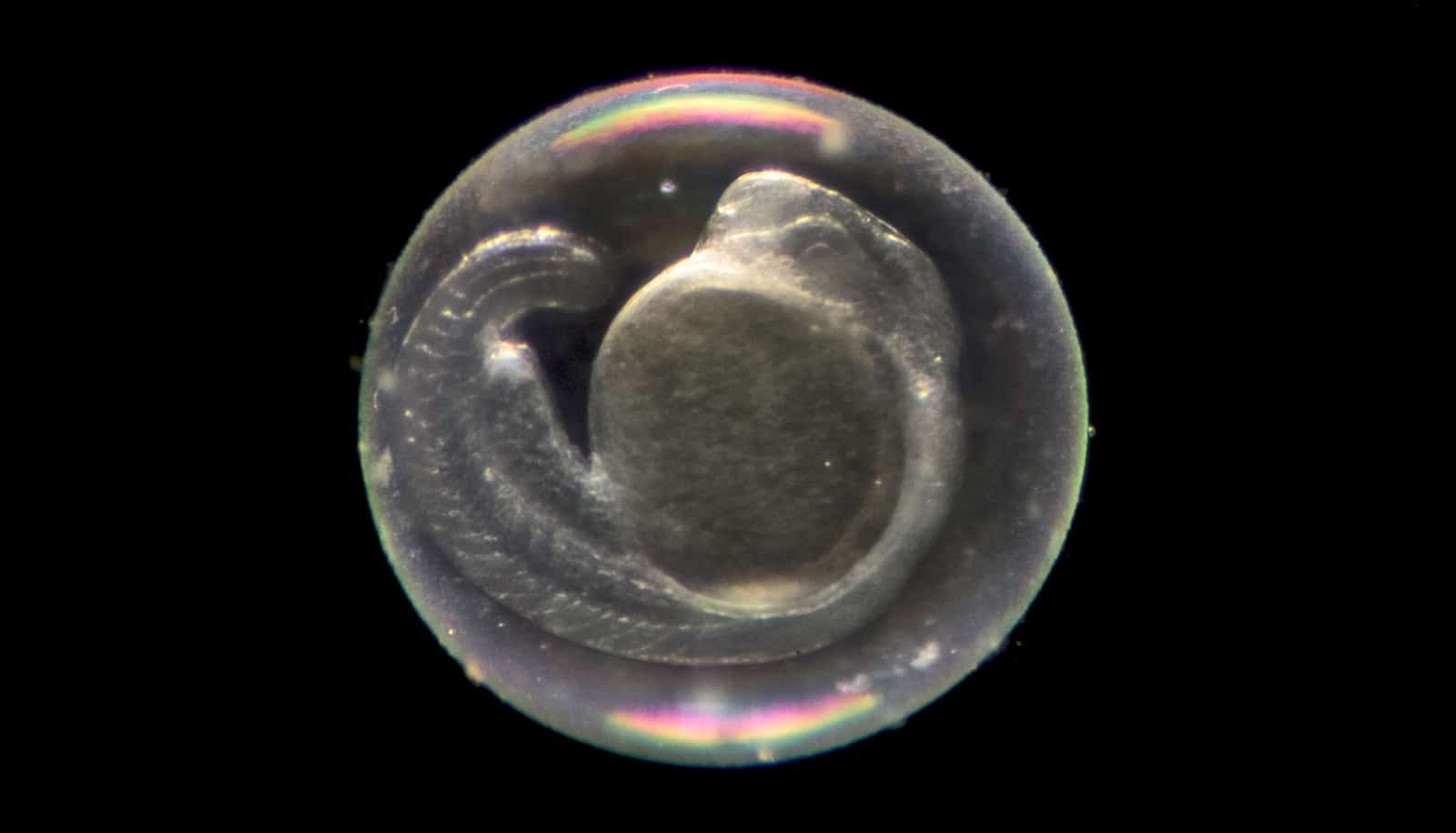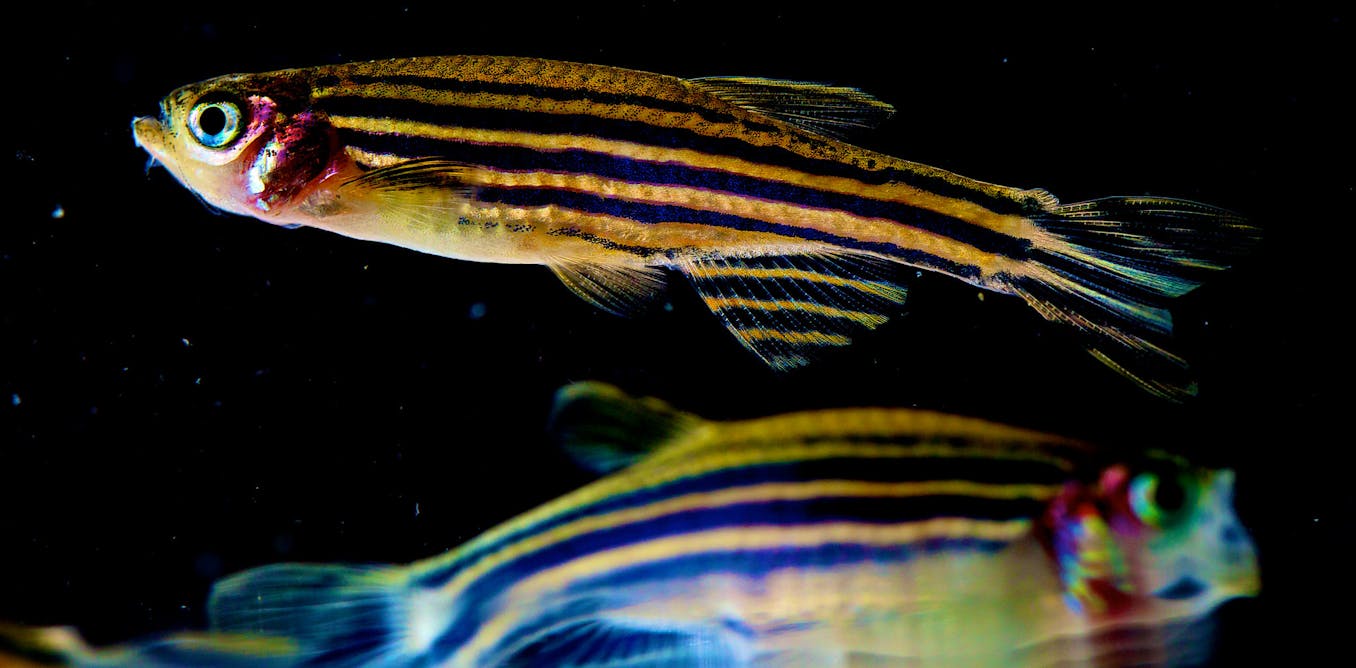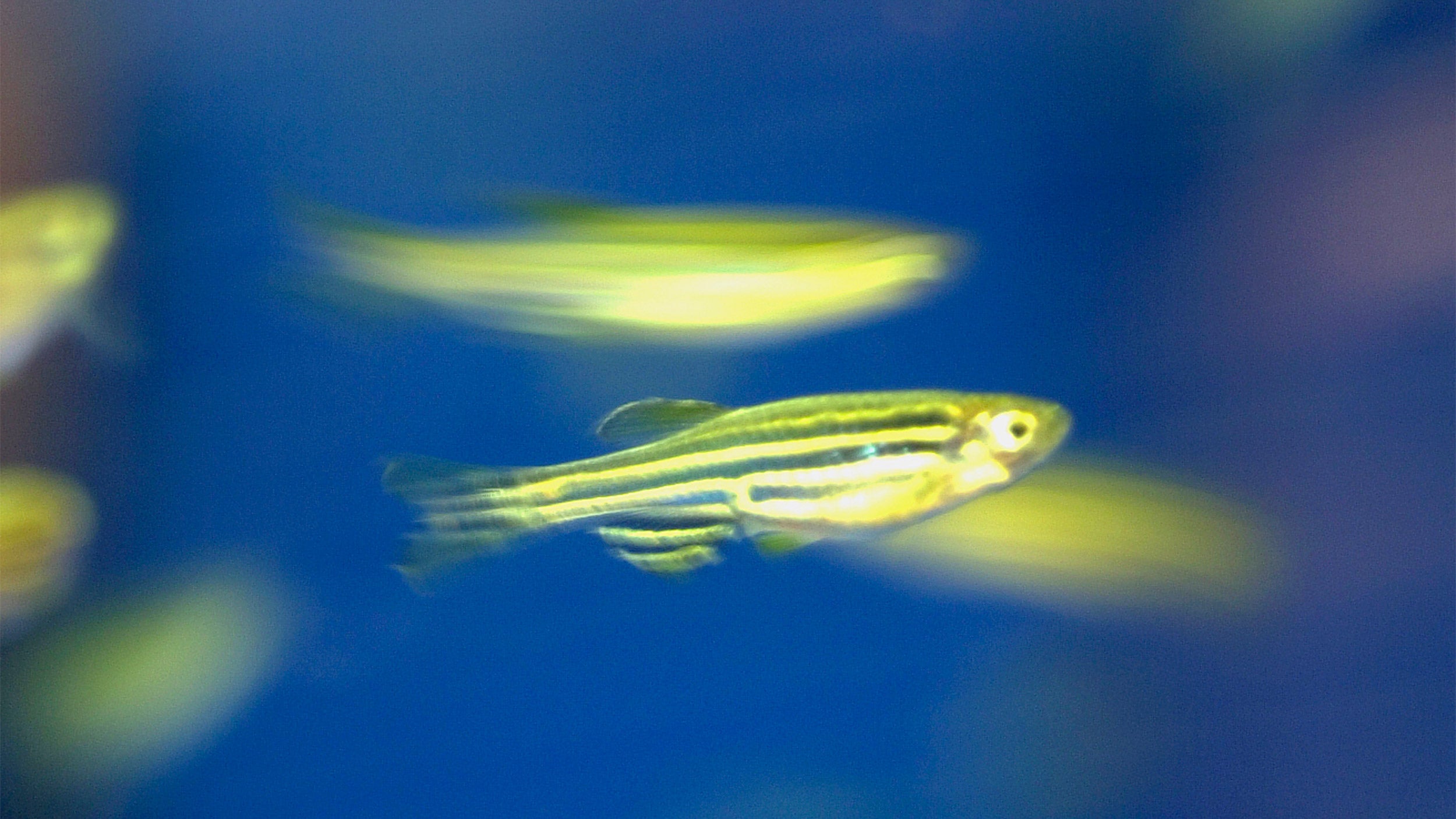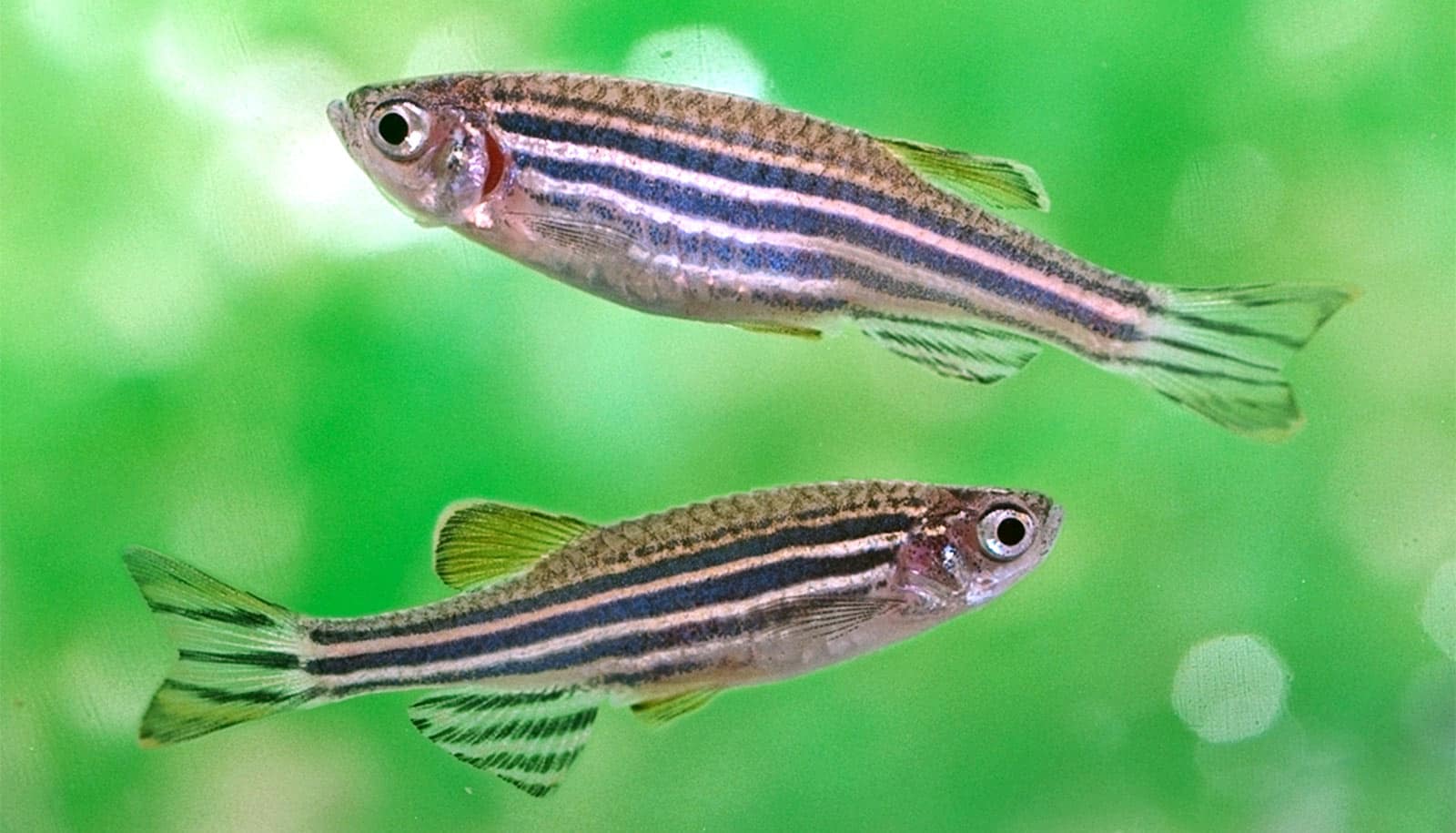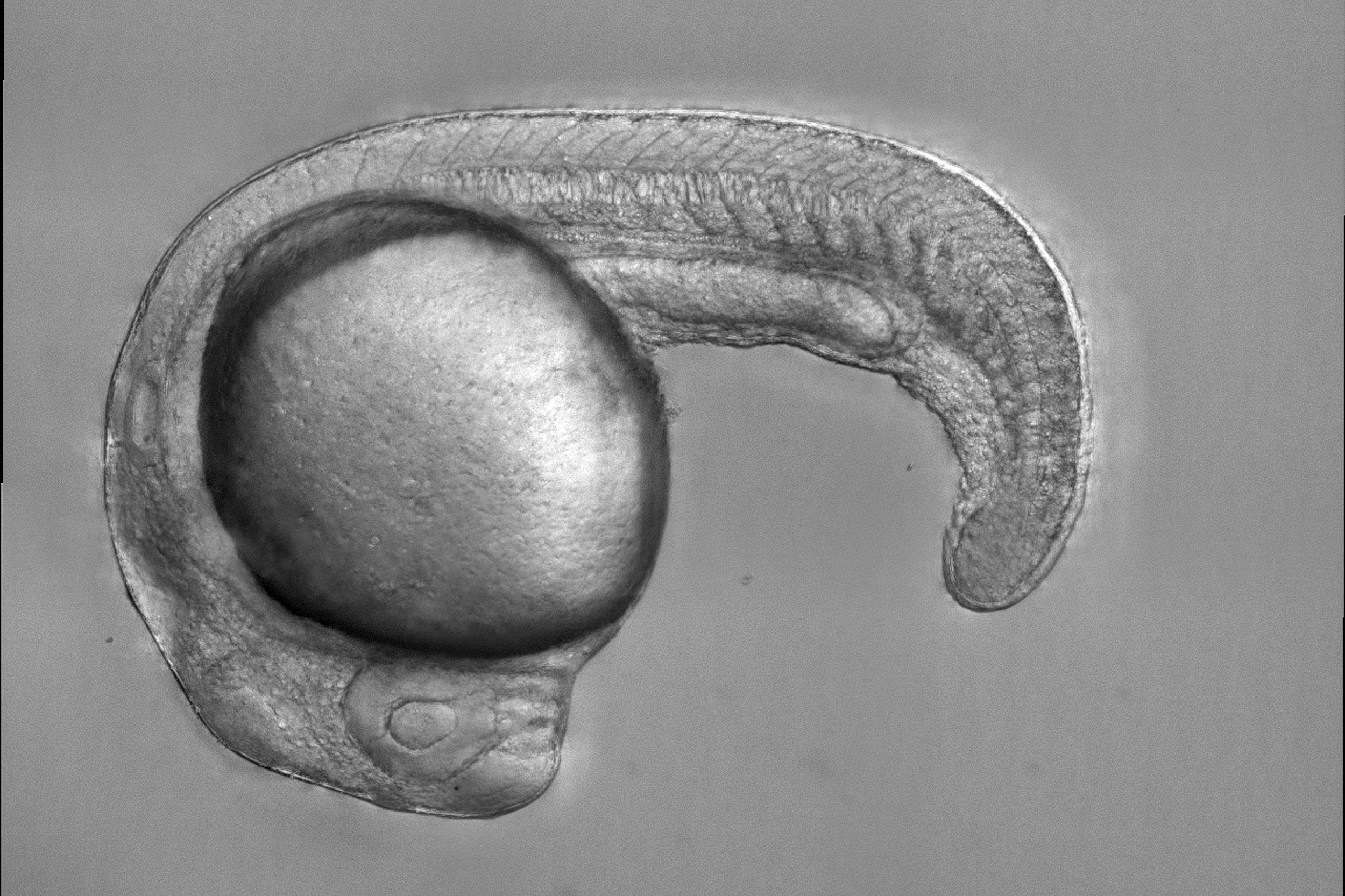Zebrafish are a scientist's favorite for early-stage research – especially to study human blood disorders
Of the many qualities that make the zebrafish a model organism, the fact that it shares 70% of the genes humans have makes it an ideal candidate for developmental biology research.
Aug. 7, 2023 • ~7 min
Zebrafish share skin-deep similarities with people, making them helpful models to study skin conditions like vitiligo and melanoma
Zebrafish melanocytes cause diseases similar to those in people when they don’t work properly. Studying how they regenerate after injury could lead to new treatments for hair color loss and vitiligo.
July 10, 2023 • ~6 min
Where are memories stored in the brain? New research suggests they may be in the connections between your brain cells
Understanding where and how memories are formed could lead to more ways to treat conditions like PTSD and addiction.
Jan. 10, 2022 • ~9 min
Five ways fish are more like humans than you realise
You share the same drug habits, the same age-related memory problems and are similarly impatient when forced to wait for food.
March 31, 2021 • ~8 min
A tropical fish evolved to endure rising temperatures – but it may not be fast enough to survive climate change
Species can evolve to tolerate higher temperatures – but there's a ceiling beyond which adaptation isn't possible.
Dec. 15, 2020 • ~5 min
Flaws emerge in modeling human genetic diseases in animals
Recent studies using CRISPR to fast-track genetic studies into human disease genes appear flawed.
Nov. 10, 2020 • ~8 min
/
2

